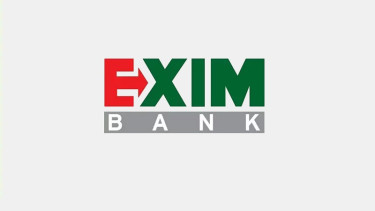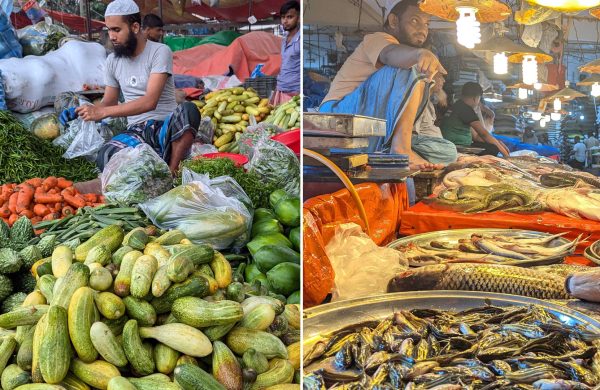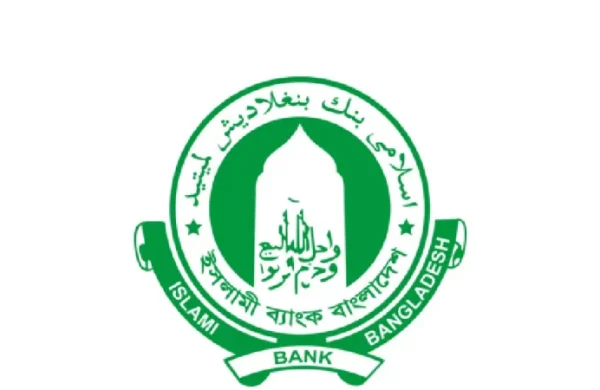Uncertainty looms over EXIM Bank merger plan, clients at risk
- Update Time : Tuesday, June 24, 2025

Staff Correspondent:
Concerns have emerged over the government’s initiative to merge Exim Bank with four financially troubled banks linked to the S Alam Group embezzlement scandal.
Exim Bank’s comparatively better financial condition has prompted questions about the logic and potential fallout of merging it with weaker institutions—especially regarding the possible uncertainty it could create for Exim Bank’s existing customers. In such a scenario, many depositors may consider severing ties with the bank.
Further concerns have arisen within the banking sector over the effectiveness and acceptability of merging the bank through a government directive, without any consultation with Exim Bank’s entrepreneurs, directors, or shareholders.
Under the previous government, similar efforts to merge struggling banks with relatively stronger ones were proposed. It seemd that the then-Governor Abdur Rauf Talukder had largely transferred the liabilities of weak banks to more stable institutions. However, that initiative failed to materialise.
Following the student-public uprising and the resulting change of government in August last year, the previous plan was shelved. Instead, five Islamic banks have now come under discussion. The latest merger proposal has also originated from the government, raising further doubts over whether it will succeed. Notably, Exim Bank’s current board has expressed opposition to the merger, arguing that the bank is gradually recovering from its earlier crisis.
The five banks under the proposed merger initiative are First Security Islami Bank, Global Islami Bank, Union Bank, Social Islami Bank, and Exim Bank. Of these, the first four have long been under the control of S Alam Group. The government’s plan is to merge these five into a new Islamic bank. Initially, the state will provide the necessary capital for this new entity.
The merged bank’s primary focus will be financing the small and medium enterprise (SME) sector. Bangladesh Bank is expected to issue the license for the new institution. All deposits and assets from the five merging banks will be transferred under the new entity. Earlier this month, Bangladesh Bank held discussions with the five Sharia-compliant banks regarding the formation of this consolidated Islamic bank.
When asked, Bangladesh Bank spokesperson Arif Hossain Khan told journalist “There have been discussions about the merger following a special audit. However, no final decision has been made yet. If the situation does not warrant a merger, or if there is no willingness from any party, the merger will not proceed. This process will be implemented only after consulting all stakeholders. Everything will be done in the interest of depositors.”
First Security Islami Bank Chairman Mohammad Abdul Mannan told journalist “It will take a long time to recover from the damage the banks have suffered. For this reason, the central bank has taken the initiative to merge them. A large portion of the population still remains outside the formal banking system. If the merger is implemented properly, it will lead to the formation of a large Shariah-compliant bank in the country.”
Meanwhile, among the five banks proposed for merger, Exim Bank stands in a better position in several financial indicators compared to the four banks exploited by the S Alam Group. For this reason, the board of directors and shareholders of Exim Bank are reluctant to merge with the four troubled institutions. According to individuals associated with Exim Bank, the bank independently handles more business in import-export and expatriate remittance than the other four combined. Many of the country’s top exporters are still among Exim Bank’s clients.
According to Exim Bank data, it is one of the leading banks in the country in terms of foreign exchange earnings from exports. Although the bank’s board was restructured following the change in government, no customer experienced difficulties withdrawing funds. In the past nine months alone, customers withdrew approximately Tk 170 billion, and the bank faced no issues in meeting those withdrawals.
Exim Bank is also not among the top 10 banks in terms of defaulted loans. While many other banks are currently struggling with capital shortages, Exim Bank does not have such a deficiency. Thus, Exim Bank does not meet the usual criteria based on which the central bank is seeking to merge the five banks.
It is known that in 2024, Exim Bank is projected to conduct Tk 503.81 billion in business through import-export and expatriate remittances. As of May this year, the bank had already completed Tk 187.44 billion in such transactions—more than the other four banks combined.
In the past 10 months, 294,000 new accounts have been opened with Exim Bank. During this period, the bank received new deposits amounting to Tk 103.50 billion, and collected loans worth Tk 82 billion. Exim Bank currently operates with 155 branches and 74 sub-branches across the country, employing 3,393 staff. The total number of customers now stands at 1,664,000. As of the end of May, the bank’s total deposits amounted to Tk 388.45 billion, while its total loans or investments stood at Tk 533.17 billion.
Bank officials noted that the ownership of the other four banks had long been under the control of S Alam Group. Embezzlement at those banks occurred openly and on a large scale, leaving them in deep crisis following the shift in oversight. However, Exim Bank’s situation is not comparable.
Officials believe that if the central bank were to officially declare that Exim Bank would not be part of the merger, many existing problems would be resolved. It would also allow Exim Bank to recover more effectively. Instead, the bank has now been thrown into renewed uncertainty following the announcement of the proposed merger.
According to Bangladesh Bank data, as of the end of December last year, the default loan rate of Global Islami Bank stood at 94 per cent, Union Bank at 96 per cent, First Security Islami Bank at 92 per cent, and Social Islami Bank at 62 per cent.
In comparison, Exim Bank’s default loan rate was 28 per cent. For context, the overall default loan rate in the entire banking sector stood at 24 per cent as of the end of March.
Global Islami Bank Chairman Mohammad Nurul Amin told journalist “Bangladesh Bank has both the plan and the capability to carry out mergers. However, the process should be voluntary. Banks are merging all over the world. If done according to proper procedures, merging banks in Bangladesh would also be a positive step.”
Union Bank Chairman Md. Farid Uddin Ahmed told journalist “The five banks are not functioning effectively on their own, which is why Bangladesh Bank has taken the initiative to merge them. Merging is a better solution than shutting them down.”
Exim Bank officials argue that after the change of government in August last year, the bank’s board was restructured and it has since been operating professionally. Legal action is being pursued, in accordance with banking regulations, to address earlier loan-related issues.
They assert that if the initiative to merge Exim Bank is driven by political considerations, it would set a bad precedent. This could lead to a lack of confidence among depositors, even in otherwise well-functioning banks—since the same outcome might befall them in the future.
Nazrul Islam Majumder had been the chairman of Exim Bank—established in 1999—since 2007. He also served as chairman of the Bangladesh Association of Banks (BAB), a forum of bank entrepreneurs, for around fifteen years.
Following the fall of the Awami League government in August last year, Bangladesh Bank restructured Exim Bank’s board. The current chairman is Nazrul Islam Swapan. In addition, Md. Nurul Amin and Anjan Kumar Saha serve as directors representing the shareholders, while former Bangladesh Bank Executive Director SM Rezaul Karim and chartered accountant Khandaker Mamun serve as independent directors.
When asked, Exim Bank Chairman Nazrul Islam Swapan told journalist “Exim Bank is not one of the five banks that Bangladesh Bank has taken the initiative to merge. However, the merger announcement has created panic among our customers and has generated distrust across the entire banking sector. Exim Bank will be able to start recovering once it is officially declared that we are not part of the merger. If operations proceed normally, Exim Bank will make a strong comeback in a new form next year.”


















